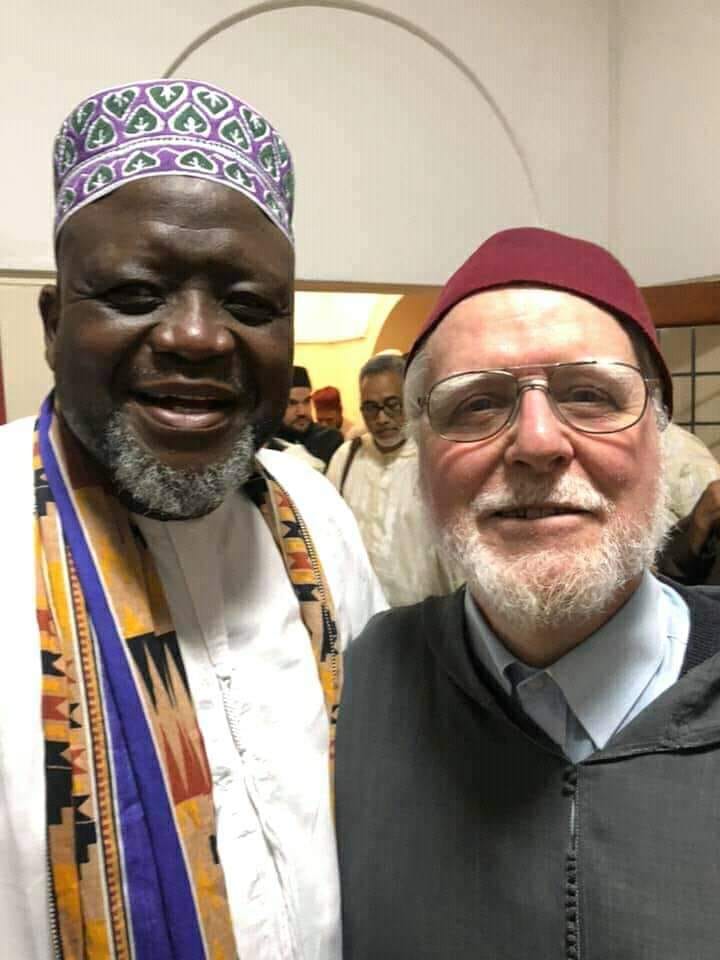
Sheikh Hamza Mbhele has passed on, handing his baton to the next generation, writes an Al-Qalam Reporter.
The South African Muslim community is mourning the loss of Sheikh Hamza Mbhele, a giant Islamic figure who passed away last week. He was not just a man of deep Islamic knowledge but a tireless community leader, a mentor to generations, and a pioneering voice for the empowerment of Black African Muslims.
Revered for his sharp intellect and fearless public da’wah, those who knew him say Sheikh Mbhele was a walking encyclopaedia; his mastery over religious, political, and social discourse made him a magnetic figure in Durban’s streets, masjids, and intellectual circles alike.
“For decades, he stood at the intersection of faith and identity, advocating for a grounded and confident Black Muslim presence in a post-apartheid South Africa.
Durban community activist Milo Muhammed reflected on his early life with the Islamic Propagation Centre International (IPCI).
“He was a giant figure not just in stature but in his approach to da’wah on the streets of Durban. I recall how he would just pick people off the street and engage them in topics of religion, politics, and community issues. I used to watch him in amazement… he captured people’s hearts. His message was simple: there is only One God, and Muhammad (PBUH) was His final messenger.”
Muhammad added that Mbhele always wanted to break down walls between people.
“Issues of apartheid, youth challenges, and community healing were close to his heart. A true giant of a man we have lost,” Muhammad said.
Mbhele’s grassroots engagement wasn’t just theological; it was deeply personal.
Apartheid’s lingering scars, family breakdowns, and the erosion of youth morality were central concerns in his outreach. He addressed these with an unapologetic honesty that drew people in, not pushed them away.
Born into a generation of African Muslims who embraced Islam in the 1970s, Sheikh Mbhele helped forge a new path for Black South Africans within the Islamic tradition. His efforts weren’t about assimilation; they were about ownership.
Dr Tahir Sitoto, academic and former Muslim Youth Movement president, told Al-Qalam: “His passion for Islam and making Islam a reality for African Muslim communities will always be remembered. He didn’t want African Muslims to be seen as charity cases. He wanted them to take leadership. That’s what kept our friendship going as we both shared that passion and desire.”
He recalled their relationship from the 1970s, when a small but growing number of indigenous South Africans were embracing Islam. Sheikh Mbhele stood out even then, not for seeking the spotlight, but for his ability to galvanise and mentor.
“Perhaps his greatest success is in the fact that he inspired many young Muslim leaders. At his janazah, I met Moulana Milanzi and many others who testified to how Sheikh Hamza mentored them. He passed the baton to the next generation,” said Sitoto.
He said his leadership extended far beyond any single organisation. He was a central figure in defining what it meant to be a Black African Muslim in South Africa, confident, self-reliant, and rooted in faith.
“His passion for the deen will always be remembered, his passion for Islam, and for making Islam a reality for African Muslim communities. He wanted it to be not just an occasional thing but a reality. I remember him being driven by his passion and quest to let African Muslims own Islam. He wanted them to take leadership and ownership, and not be seen as an extension of historical Muslim communities. That’s what kept our friendship going,” said Sitoto.
Sitoto pointed out that perhaps his success was attributed to the fact that he had inspired many young Muslim leaders.
“He was someone who took it upon himself to mentor the up-and-coming Muslims of the African community. He has inspired and mentored the second-tier leadership that has taken over the leadership of various organisations.
Sitoto said those who knew him referred to him as a voracious leader,
“Not just religiously, but also socially and politically. Sheikh Hamza was a natural leader, and many bestowed upon him many accolades. Many were attracted to his leadership,” said Sitoto.
Among his peers and students, he was known simply as Ameer, a natural leader who held a quiet authority that demanded respect.
Those who knew him say Sheikh Hamza Mbhele’s legacy will live on in the communities he served, in the leaders he mentored, and in the generations of Muslims he inspired to live Islam with dignity, purpose, and pride.










